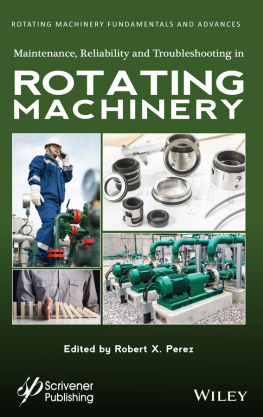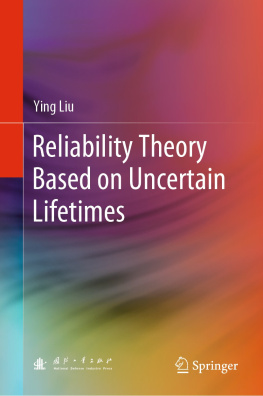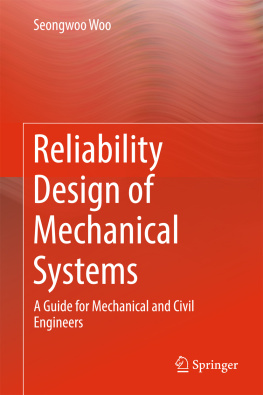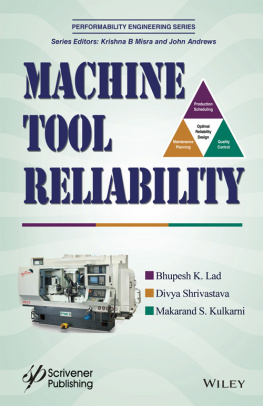About the authors
Salvador vila FilhoChemical Engineer (UFBA) and Petrochemical Process Engineer (Petrobras)has extensive knowledge in the chemical industry. He is specialized in statistical techniques (CQE/ASQ) to investigate abnormalities in the industry and work as an organizational consultant (UCSal) for transformation of culture. He has developed auditing techniques, effluent control, and fugitive emissions to reduce environmental impacts in the industry. He has also developed a technique for analyzing the perception of the operators regarding routines that have an impact on safety, energy, and environment (UFBA). As a manager of industrial facilities, he created a model for clean management, including human behavior and technologies. He has worked as a professor in graduate courses in administration, chemical engineering, and industrial engineering at different universities, especially in the subjects of risks, reliability, and human factors. Meanwhile, human aspects are investigated in the courses and practices of psychoanalysis allowing to enter by the cognitive fault in the behavior, in the society and the work. He has partnerships in the private initiative in reliability centered maintenance and human reliability. doctoral research in the human and organizational cultures area and provides concepts, techniques, and methods to keep industrial processes under control. He has presented articles were presented in the areas of human factors, risk, process safety, energy and water efficiency and currently in culture and behavior change. He has also work in the energy sector and developed a solution for productive arrangements. He also contributed to reduce the load of nitrogen in the effluent of the fertilizer industry with statistics, process studies, equipment technology, investigation of procedures, and educational campaign (Friends of the Lagoon). As a professor and researcher of UFBA in the department of mechanical engineering, he conducts research and services in the areas of risk management, organizational culture and human reliability, loss of process, energy, and water savings. Currently, he has cooperation with RLAM (Refinery) in energy efficiency, UOBA Active North in the area of reliability and risk, Secretariat of Public Security in the area of risk in mega-event and behavior of the police force of the State of Bahia. In addition, he has worked on tools and projects of public safety for preparedness for emergency to avoid disasters.
Ivone Conceio de Souza CerqueiraGraduated in Nutrition from the Federal University of Bahia. She has been a Federal Public Servant for the Ministry of EducationFederal University of Bahia, since 1982 and current coordinator of the nucleus of follow-up of undergraduate courses assessmentspro rectory of undergraduateUFBA. She is specialized in hospital management by the Institute of Collective Health/UFBA, 1996, in clinical nutrition by the University of Navarro and in people management by the School of Administration, UFBA. She holds a masters degree in medicine and health, Faculty of Medicine, UFBA. A member of the Communication and Health Research GroupUFBA Institute of Collective Health. She has experience in international hospital accreditation in the areas of education and professional qualification and facilities security. She has published articles in security, risk in mega-event, human factor, leadership, and human reliability and was a doctorate student in industrial engineeringPolytechnic SchoolFederal University of Bahia-2017.12020.1.
Carine Nogueira SantinoGraduated in Production Engineering from Salvador University and masters in industrial engineering from UFBA: study in loss mapping in the metallurgical industry. Doctorate student in Industrial Engineering/UFBA: study in process optimization. She has professional experience in quality checking in steel industry, involving audits and Six Sigma project; she has 4 years of experience in human resources in the area of people management. Member of the Research Group GRODINPolytechnic School-UFBAresearch group at dynamic risk, and topics that address reliability safety and reduction of environmental impacts. She has published articles in the areas of process safety, human reliability, and loss mapping.
Acknowledgment
First and foremost, we would like to thank all the family members for their valuable support throughout the project.
We also acknowledge the support of Jos Rafael Nascimento Lopes and Luiz Fernando Pelerine Pessoa at all the levels of the project, especially at the beginning and during meetings and for providing important contacts for the preparation of the initial chapter, which we will certainly count on in future projects.
In addition, we acknowledge the financial support of CNPq, National Council for the Development of Research and Technology, via a research grant for technological development to the book project leader, Dr. Salvador vila Filho, registered as DT2 in the period 201720 and 202023. We also recognize the financial support for research, through CNPq's Universal Notice in the period 201518 for the construction of the project.
In addition to the partnerships the FAPESB and CAPES research agencies have played an important role in funding scholarships such as master and doctorate scholarships for industrial engineering program for Carine Santino as the author. Scientific initiation for the graduate student in Production Engineering, PIBIT, Lucas Menezes, worked as translator collaborating on the project.
We also thank the industrial engineering program of the Federal University of Bahia, which brought together the group of authors, Carine Santino and Ivone Cerqueira, under the leadership of Dr. vila Filho during the graduate program.
We would like to thank the undergraduate and graduate students Jade vila, Jlia vila, Rita vila, and Lucas Menezes for their help in editing the book, elaboration of figures, and supervision. We especially highlight the important role of the undergraduate Lucas in translating the materials for this project.
We are grateful to all the partner institutions, National and International Universities (Texas AM University, Poznan University), Brazilian and International Industries, Companies in general and Government Agencies in particular Public Security, for enabling the validation of the concepts, tools, and procedures presented in this book.
We thank Vivien Susan MacIver for the English language review.
A special message to the authors: The persistence and acceptance of the challenge of this project, despite the restrictions in Economics and in the Management of Educational Institutions, is proof that Brazilian Culture produces high-quality characters worldwide!
Postmortem message: The union as a couple gave comfort to the author Ivone to be in this project. The lack of Gil reinforced the importance for its completion, and wherever he is, we want a peaceful rest and the certainty that he was also part of the construction of this book.
Annex
Table A.1
Chapter, products, and annex, OTC operationaltechnical culture.
| Annex | Context | Chapter/product | Subject |
|---|
| A. Process lossing map | Model for loss mapping | /Product 01 | Loss of process |
|---|
| B. Calibration of spar-h method | B1-Operational context SPAR-H | Questionnaire for the analysis of the operational context, for operational team & staff/managers. | /Product 4 | SPAR-H |
|---|
| B2-PSF calibration SPAR-H | Parameters for calibrating the PSFs, for action and diagnostic task | /Product 4 | SPAR-H |
| C. Task assessment | C1Standard task data collectionPADOP | Task data collection form |
|---|





